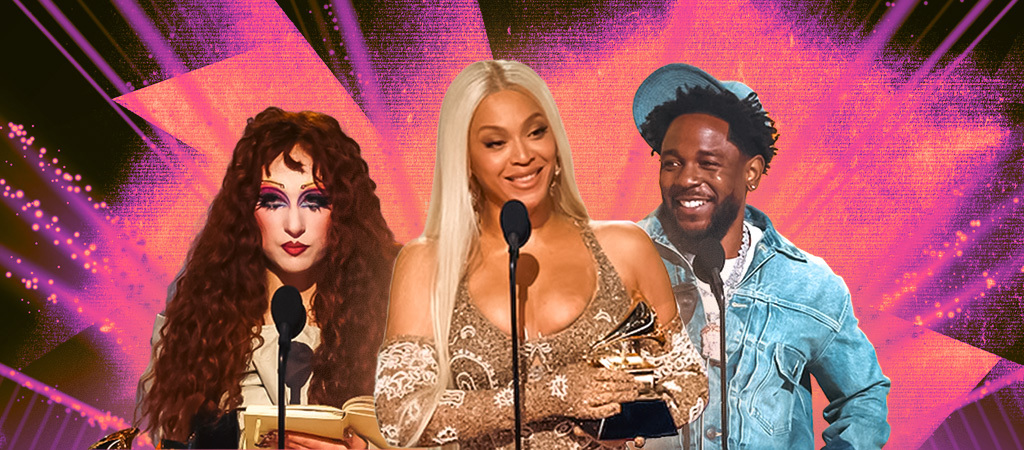It has been years since I can remember a Grammy ceremony that wasn’t marred by some sort of controversy. Usually, these revolve around some form of recognizing diversity; whether it’s for women or people of color, the Recording Academy has a long track record of dropping the ball, even leading to some artists picking up stakes and swearing off the award show for good (or for a couple of years, in the case of The Weeknd).
Last night, for the first time in a long time, the Grammys got it right.
Starting with the Big Four, and working down the list of winners from the 67th Annual Grammy Awards, there were plenty of surprises — but the biggest one was that there were no grumbles online and little public outcry over another egregious snub or obviously missed picks.
Beyoncé won her first-ever Album Of The Year award for Cowboy Carter after being snubbed for each of her last four albums (the losses for Lemonade and Renaissance, were especially galling, even prompting protest from eventual winners like Adele). And, hey, look: It may have been one of the most “here, damn” awards ever given, but at this point, demanding honest intentions is a little like asking a cat to bark.
Even more shocking — for no one more than Beyoncé herself, apparently — the “II MOST WANTED” singer also won Best Country Album for Cowboy Carter, making her the first Black woman to win a country award in 50 years (the Pointer Sisters won in 1975 for “Fairytale”). She’s the first Black artist to win Best Country Album EVER. It should go without saying (but in a nation demanding the revocation of every stride made by Black people in the last 70 years, it apparently does not) that this was a massive disservice, considering the contributions Black Americans have made to the genre (including, depending on who you ask, inventing the damn thing).
Speaking of making history: Kendrick Lamar won both Record Of The Year and Song Of The Year for his Drake diss track “Not Like Us.” Again, it feels like there might be an edge of pettiness to the award from the Academy (directed at Drake rather than K. Dot for his years of non-stop sniping), but again, who cares? It was the right choice — and pettiness is pretty much bang-on theme given the song that won it.
Looking at the fields, there were no other songs as ubiquitous or as universally beloved (outside Canada, at least). That “Not Like Us” is only the second hip-hop song to win Record or Song Of The Year (after Childish Gambino’s “This Is America”) and Kendrick’s first ever win (which he could arguably have won in 2018 with “Humble”) should be a bit of an embarrassment to the Academy, and incentive to do better. It’s certainly an example of how to stop making the easy pick so dang complicated.
Another easy pick? Doechii’s win for Best Rap Album. Again, Grammys history is blemished when it comes to hip-hop — especially women in hip-hop — as only three women have ever won this award and neither of them is Missy Elliott (Doechii’s the third, after Lauryn Hill and Cardi B). That she won for a mixtape (her debut, Alligator Bites Never Heal) is a sweet cherry on top, recognizing the breadth and depth the genre has to offer, and acknowledging that it’s got its own rules. As Doechii pointed out in her acceptance speech, hopefully, this fully opens the door for more women to be recognized in the future.
Even outside hip-hop and Black History Month fodder, the Grammys managed to not flub the awards in other popular categories. In years past, you could have bet nearly sure money Khruangbin or somebody would have won Best New Artist over Chappell Roan despite having been releasing music and touring since 2010 (how they were nominated in the first place, no one will ever know). And with that field, it’d have been tough to whiff (Doechii, Shaboozey, or Sabrina Carpenter could have all been acceptable), Chappell should have been a lock — and the fact that she wasn’t just does to show how bonkers some of the Academy’s decisions have been in the past.
Carpenter, Charli XCX, Muni Long, SZA, NxWorries, Rapsody, and more won the awards for which they were nominated, proving that the changes the Grammys have recently made are starting to pay off. Whereas in the past, you could reasonably expect the picks to be stodgy, underground picks no one’s heard of — but who are in pretty cozy with the older… shall we say, sunshine-averse Academy establishment. This year, the picks were mostly more contemporary and justifiable (Chris Brown getting Best R&B Album notwithstanding). At least, you can make a case for each winner, even if your fave didn’t take home an award. And all of the above fields were filled with picks that wouldn’t ruffle most fans’ feathers, anyhow.
Still, while the veteran award season juggernauts like Billie Eilish and Taylor Swift didn’t take home any trophies, you get the sense they weren’t really expecting to, nor were their fans pushed to shout about any injustices. The 2025 Grammys ended with the optimal outcome: no one’s feelings were hurt, everyone had fun, and the show, while being long as ever, never flagged or flopped (a testament to Trevor Noah’s hosting acumen as much as anything). If this is what it looks like when the Grammys get it right, we should do this more often.







